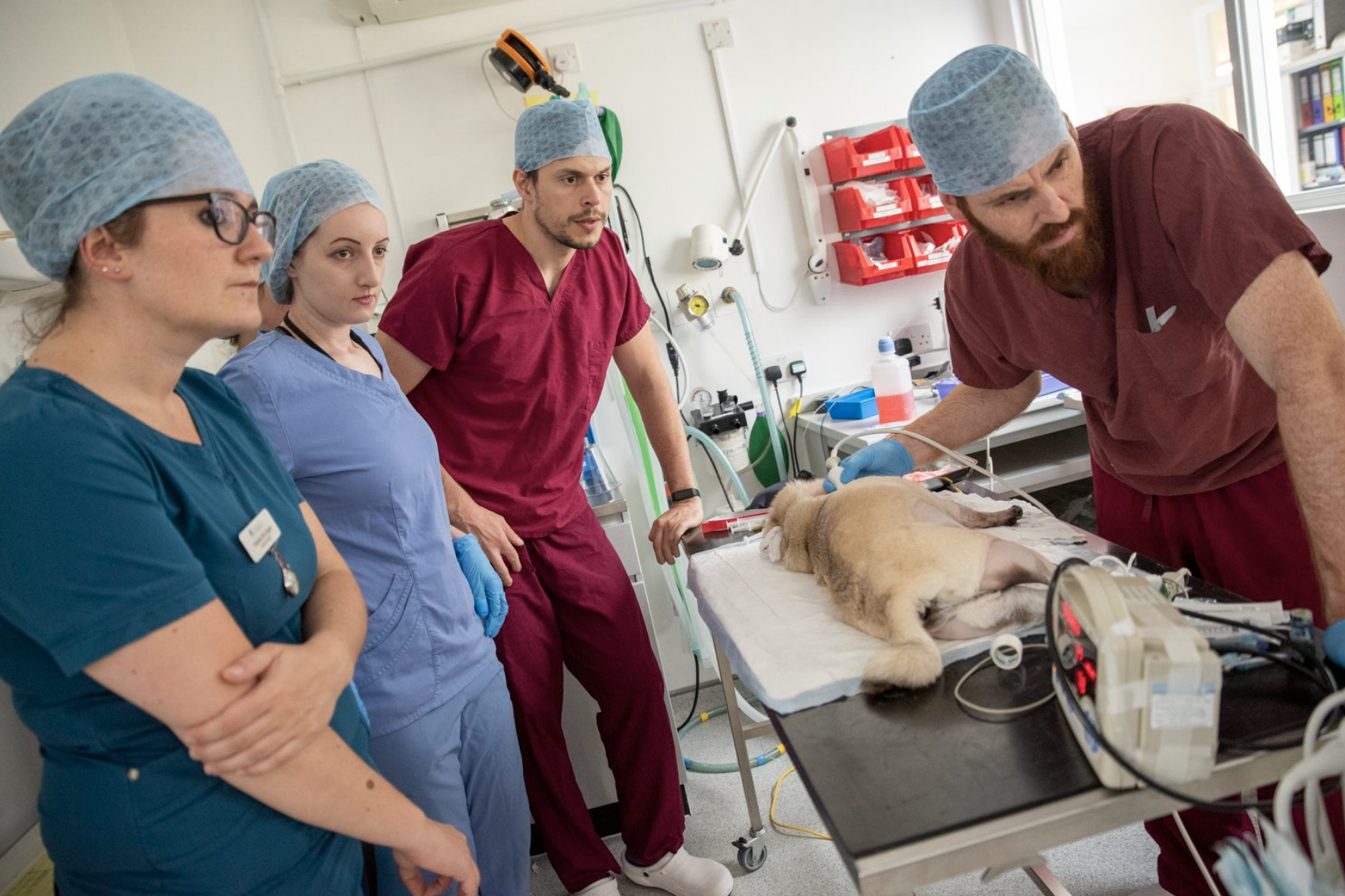Sectors
Research/ Academia, Small Animal
Support for global candidates/visas
Yes
Remote/work from home
No
Flexible working environment
Yes
Benefits
Yes
Start writing here...
Organisational background
The School of Veterinary Science’s Small Animal Teaching Hospital is one of the largest, most modern and well-equipped hospitals for small animals in Europe.
With over 50 veterinary surgeons providing specialist diagnosis and treatment to cats and dogs referred from a variety of practices, the hospital is one of the busiest small animal referral centres in the UK.
Our specialists are supported by residents and interns, who are highly selected, experienced qualified vets working as “specialists in training”.
The hospital plays a key role in the education of veterinary students, teaching them the very latest concepts and techniques in a caring and supportive environment. The hospital also provides training towards clinical specialisation for qualified vets through its residency programmes. Clinical research is carried out within the hospital to improve the lives of pets everywhere.
Organisation aims & mission
We are a teaching hospital, aspiring to provide excellent patient care and an excellent learning experience for vets of the future.
SERVICES: The Small Animal Teaching Hospital runs a multidisciplinary referral service for vets in practice, seeing over 10,000 clinical cases per year. Our team of nationally and internationally-recognised senior clinicians work to the highest standards of medicine and surgery and include both RCVS and European Specialists. They work within one of the most advanced and well-equipped small animal hospitals in Europe to deliver an extremely high standard of care.
Services are supported by specialists-in-training (residents) and interns as well as a fully-qualified nursing team. Undergraduates in their final clinical years rotate through the hospital to further their learning.
TEACHING: The Small Animal Teaching Hospital is involved in the clinical training of veterinary students in their final years, as well as the training of qualified vets on internship and residency programmes who are aiming towards specialist qualifications across many disciplines. The hospital is part of the University’s School of Veterinary Science and is proud to offer students, interns and residents teaching to the very highest standards of veterinary medicine in a caring and compassionate environment.
Undergraduates rotate through all the services at the hospital during their clinical years and receive a thorough grounding in all veterinary disciplines. Postgraduates come to the hospital as interns, residents and on scholarships to develop specialist skills in our state-of-the-art facilities under the guidance of our specialist team.
RESEARCH: The Small Animal Teaching Hospital carries out ethically approved research in addition to its clinical work. With the key aim of benefiting patients and improving animal welfare, data is collected from cases as they are investigated and treated in the clinic. This data is sometimes numerical or descriptive such as clinical information extracted from the patient files (e.g. weight, body condition or heart rate). Data is also sometimes collected from analysis of surplus materials collected for diagnostic purposes, for example, the further analysis of blood samples. All clinical research is subject to ethical review and informed owner consent.
The hospital also works closely with the research institutions within the Faculty of Health and Life Sciences to further our understanding of health and disease. The hospital staff play an important role in supervising both undergraduate and postgraduate research projects, with the aim of improving animal welfare. Some projects also have a direct impact on human health and welfare, for example, providing information on comparative conditions in man, such as osteoarthritis.
Examples of previous and current research include the investigation of canine cruciate ligament disease, a common disease in the knee joint of dogs, stem cell research in tendons and ligaments and the clinical and physiological effects of obesity in companion animals. The impact of common medications on the cells of the gut is undergoing study, as well as the investigation of novel treatments for common canine tumours (such as mast cell tumours).
Our strapline is “Caring through clinical excellence”.
Its people and its teams: SATH is our village.

We are a diverse bunch but we are all motivated by our clinical work, our teaching, and our clinical research. Our team is strengthened by shared values.
As this is an internship there is no real option for flexible working.
The University has many initiatives that the SATH is involved in. We have recently refurbished our theatre changing rooms to become gender neutral.
We are involved in a lot of the University sustainability initiatives. We practice low(er) flow anaesthesia, recycle extensively, etc.
There are many career progression initiatives. One of the main roles of the internship is for career progression. This is often progression towards a residency and European and RCVS Specialist status.
